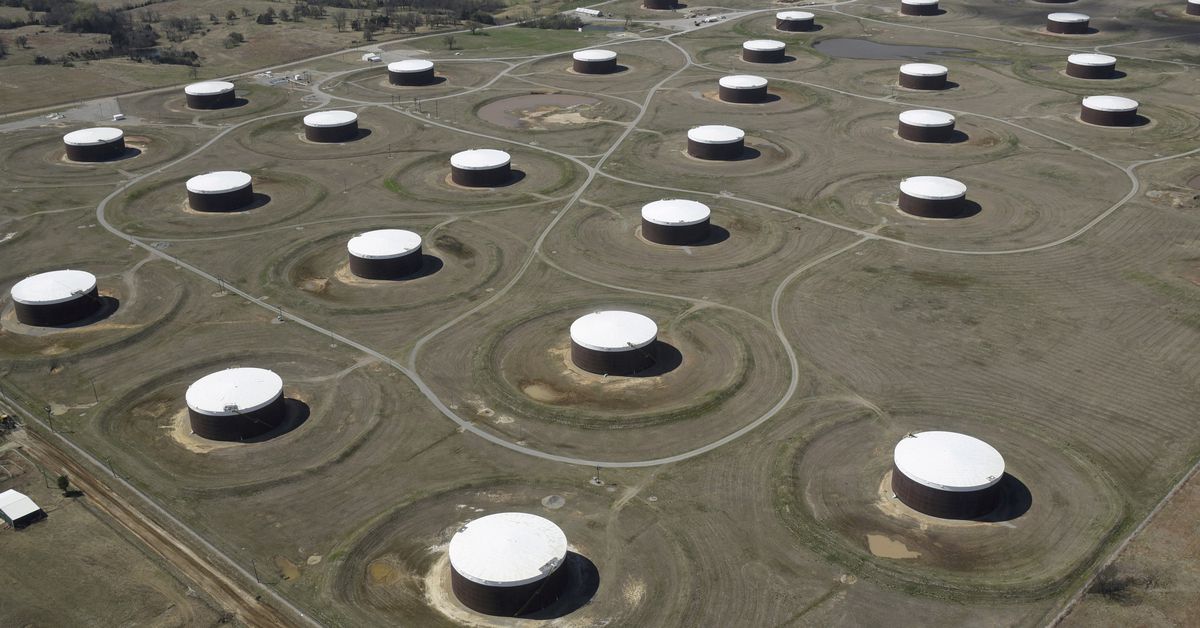Crude oil storage tanks are seen from above at the Cushing oil hub, in Cushing, Oklahoma, March 24, 2016. REUTERS/Nick Oxford
TOKYO, Nov 8 (Reuters) – Oil prices rose on Monday as positive signs for global economic growth supported the outlook for energy demand, while Saudi Arabia’s state-owned producer Aramco raised the official selling price for its crude.
Brent crude was up by 86 cents or 1% at $83.60 a barrel by 0745 GMT, after dropping nearly 2% last week. U.S. oil gained 89 cents or 1.1% to $82.16, having declined almost 3% through Friday.
U.S. President Joe Biden on Saturday welcomed congressional passage of a long-delayed $1 trillion infrastructure bill, which may boost growth and demand for fuel. read more
China’s export growth slowed in October but beat forecasts, buoyed by rising global demand ahead of the winter holiday seasons and improvements in coronavirus-hit supply chains. read more
“We can expect overall global GDP growth to hold up energy demand,” said Avtar Sandu, senior commodities manager at Phillip Futures in Singapore, adding “prices can rise higher on tight fundamentals.”
Saudi Arabia late on Friday raised the price of its benchmark crude for customers in Asia in December, exceeding market expectations. read more
The move by Aramco suggests “demand remains strong” as the OPEC producer and other major oil exporters keep the reins on supply, ANZ Research said in a note.
Demand for jet fuel looks set to take off as more governments make air travel easier with reduced restrictions for coronavirus. read more
The Organization of the Petroleum Exporting Countries and allies such as Russia, together known as OPEC+, agreed last week to stick to their plan to raise oil output by 400,000 barrels per day from December.
Biden had called on OPEC+ to produce more crude to dampen rising prices and on Saturday said his administration has “other tools” to deal with the higher price of oil. read more
Elsewhere, China’s oil imports slumped in October to the lowest in three years, as state-owned refiners withheld purchases due to higher prices, while independent refiners were restrained by limited quotas for bringing in crude. read more
Reporting by Aaron Sheldrick; editing by Richard Pullin and Kim Coghill
Our Standards: The Thomson Reuters Trust Principles.
